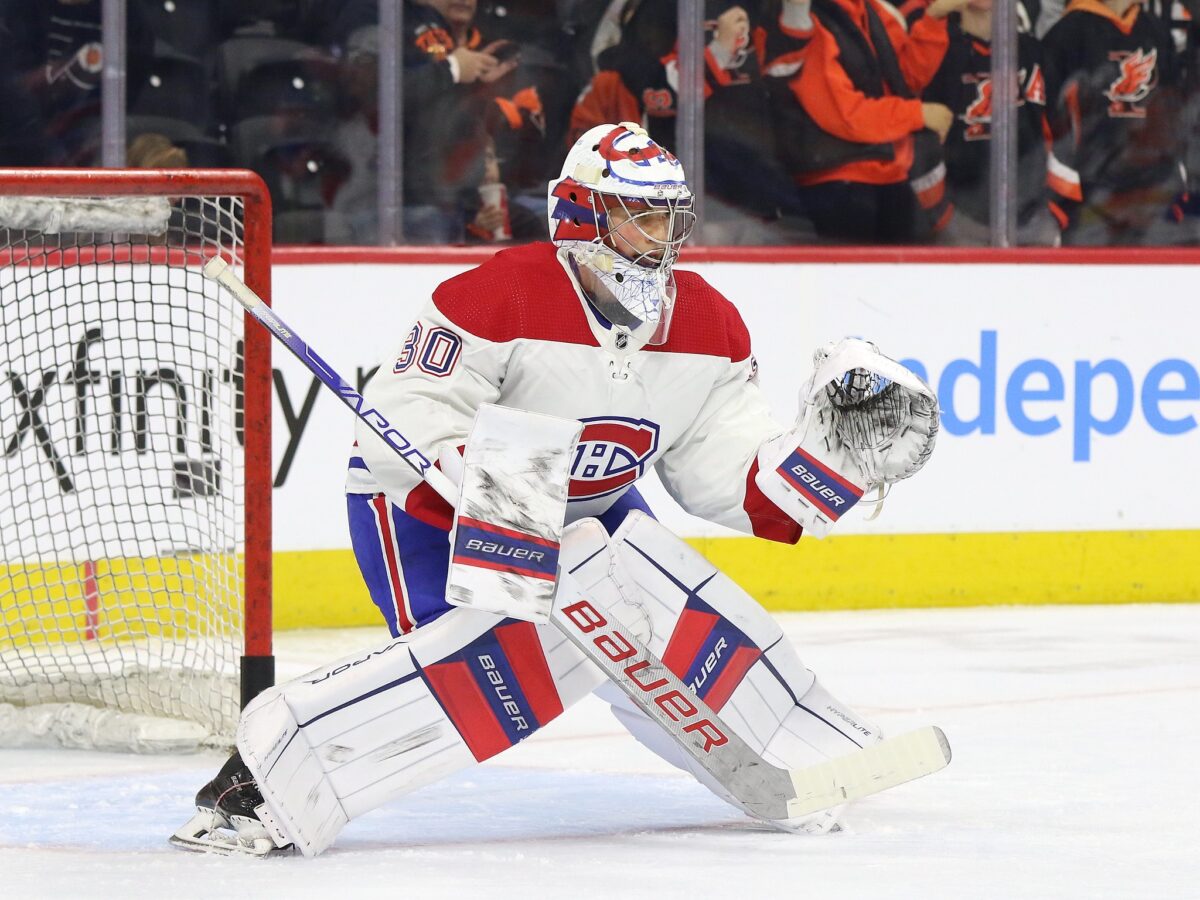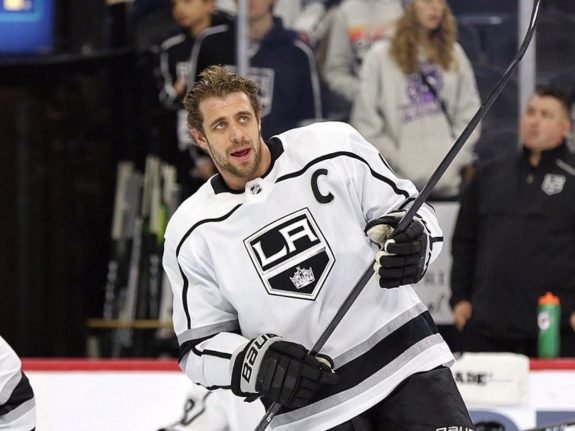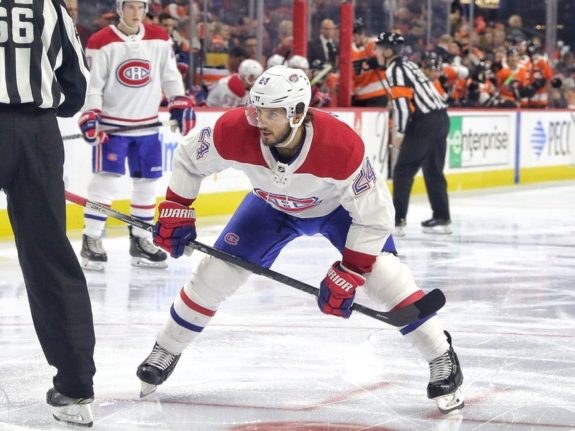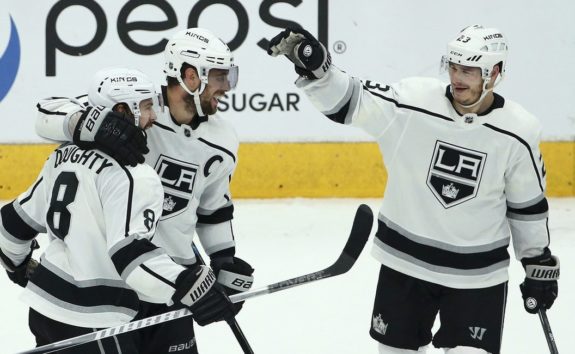Things weren’t supposed to go down like this for the Buffalo Sabres in 2023-24. Montreal Canadiens fans have to hope they won’t for the similarly rebuilding Habs when it gets to be their turn to take the next step.
Canadiens vs. Sabres
Knocking at the door of the playoffs last season, the Sabres finished one point out after having failed to lock down a spot since 2011. Many saw them taking that next step this season, only for them to stumble out of the starting gate. Now the Sabres are just a few points out last place in the Eastern Conference, even below the Canadiens.
The Habs most recently beat the Sabres on Dec. 9 for the second time this season, albeit in less-than-impressive fashion, forcing third-string goalie Cayden Primeau to make a career-high 46 saves. Contrast that with the Los Angeles Kings, whom the Montreal Canadiens have also faced in the recent past. It’s a tale of two drastically different rebuilds.

Obviously, if Canadiens fans are going to choose between the two teams for inspiration as the Habs’ rebuild continues, it’s going to be the Kings. Not only are they arguably an elite team right now at 14-4-4, having beaten the Habs 4-0 for the second time in as many weeks a few nights before. The Kings have also already begun the process of contending, first having made the playoffs in 2022 during their rebuilding efforts.
Kings vs. Sabres
More to the point, not only did the Kings only start their rebuild after the Sabres did theirs. The Kings actually won a Stanley Cup after the point at which the Sabres did theirs, in 2014. So, it’s fair to say, the Kings are more of a model for streamlined success. The problem is most teams can only hope to capture the same lightning in a bottle the Kings have.
Of their top 10 current scorers, five are Kings draft picks. However, only Quinton Byfield (No. 2 in 2022) originates as a blue-chip prospect from their current rebuild. They hit on Adrian Kempe at No. 29, right after they won their last Stanley Cup. They also hit on Arthur Kaliyev relatively late at No. 33 in 2019. Meanwhile, Anze Kopitar (No. 11 in 2005) and Drew Doughty (No. 2 in 2008) predate their current rebuild.

They acquired Kevin Fiala, arguably for cents on the dollar in 2022 from the Minnesota Wild. In separate deals with the Toronto Maple Leafs, they acquired Trevor Moore and Carl Grundstrom, giving up Jack Campbell, Kyle Clifford and Jake Muzzin (with additional futures having gone the Kings’ way).
You can make a case their only real overpay on the trade front was Pierre-Luc Dubois, the Kings having sent Gabriel Vilardi, Alex Iafallo, Rasmus Kupari and a 2024 second-round pick to the Winnipeg Jets in exchange. On one hand, considering the underwhelming five goals and six assists he’s scored so far the season, you can count the Canadiens lucky for having missed out on the Dubois sweepstakes, especially with it taking $68 million over eight years (through the Jets) to lock him up long term.
Related: No, Canadiens Won’t Trade Dach to Jets for Dubois
On the other hand though, the Canadiens should be so lucky to find themselves in a position where they feel like they can overpay to such an extreme just to secure a potential final piece to the puzzle. True, they balked at re-signing current-King, but then-unrestricted free agent Phillip Danault following their 2021 run to the Stanley Cup Final, but revisionist history is a mind killer.
Revisiting Danault’s Departure
The Canadiens may have failed to bridge the small gap between their reported $5 million per season offer and the $5.5 million cap hit the Kings eventually gave him (from ‘Stu Cowan: Habs’ Phillip Danault trying not to think about contract,’ Montreal Gazette, Feb. 19, 2021). However, Danault wasn’t prepared to take on more of a purely defensive role, which is likely what the future held for him had he stayed.

Ultimately, Danault has undeniably provided good value for his deal with the Kings as a consistent 50-point scorer, at least up to now. So, overall, credit must go to Kings general manager Rob Blake, who has overseen such a successful rebuild, especially one so unconventional that arguably amounts to equal parts drafting, trading and signing.
In comparison, the Sabres have obviously stockpiled a huge amount of blue-chip talent en route to getting to their current net-neutral position. Since they last made the playoffs, they’ve drafted Casey Mittelstadt, Rasmus Dahlin, Dylan Cozens, Jack Quinn, Owen Power and Zachary Benson. And those are just the recent top-10 picks still with the team. They also drafted Sam Reinhart and, most infamously Jack Eichel as a consolation prize, after tanking in 2014-15 to try to get Connor McDavid. So, the Sabres are proof positive the strategy in question doesn’t always work.
That having been said, that strategy also has the highest success rate, looking at the latest Stanley Cup winners. With exception to the Vegas Golden Knights last year in 2023, the St. Louis Blues in 2019 and the Boston Bruins in 2011, arguably each of the last 15 champions have engaged in some form of stockpiling high-end draft picks or another. Ironically though, you’d have to include the Kings in that list.
Kings or Sabres as a Model for Success?
As mentioned, they won in 2014, but also in 2012 as a mini dynasty in the salary-cap era. Also as mentioned, they had drafted Kopitar and Doughty leading up to those victories, but they weren’t the only ones. They missed the playoffs six straight seasons from 2003-09, with a seventh taking the form of the 2004-05 lockout. Those lean seasons also resulted in high draft picks like Dustin Brown (No. 13 in 2003), Thomas Hickey (No. 4 in 2007) and Brayden Schenn (No. 5 in 2009) joining the fray.

Granted, Hickey didn’t pan out and Schenn didn’t stay with the Kings. However, the point remains the Kings were bad for a very long time themselves before hitting their greatest level of sustained success in franchise history… the era in which we now find ourselves included.
Keep in mind, these Kings have also lost to the Edmonton Oilers, who are poster boys for drafting high, two straight postseasons now. Until they first get past the Oilers and then win it all, you can’t really argue their current strategy has been more effective than what’s been proven to work in the past. Even then, Kopitar and Doughty will presumably still figure in heavily.
It’s easy to look at the Sabres and Kings now and believe the Sabres got it wrong. There’s even a certain truth to that, because the Sabres certainly have had their share of issues. However, the Canadiens can’t exactly count on the same level of later picks panning out, like they have with the Kings, or the same level of trade success, even with GM Kent Hughes having largely hit it out of the park on that front.
Look at the Kings with eyes of envy if you must. They’ve earned it, but as you do don’t look past their two Cups and the long road they’ve had to walk down to get to this point, with an already solid foundation that served to speed up their latest rebuild. The Canadiens will realistically get there eventually, but at their own pace, following their own master plan. As crazy as it sounds, it will probably have a lot more in common with the Sabres’, just hopefully with a few tweaks for the better. Learn from their mistakes, but don’t abandon the concept of building a winner from within because of them. That would be a mistake in and of itself.
